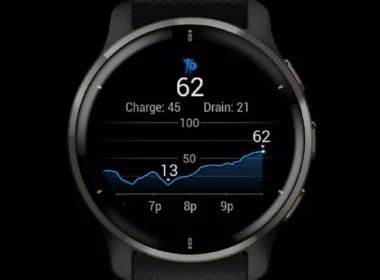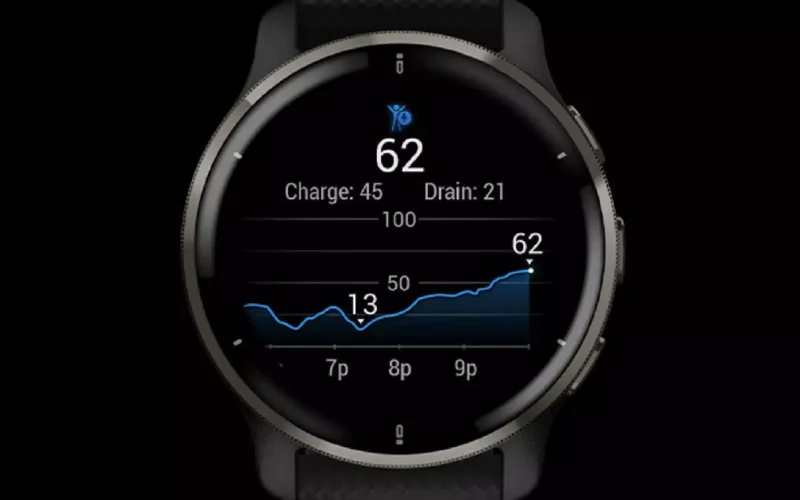Reaching optimal levels of physical fitness and performance is a delicate balance of training, recovery, and self-awareness. The rise of wearable technology, such as the Garmin Body Battery feature, has empowered athletes and fitness enthusiasts to track their internal mechanisms with increasing precision. However, interpreting and responding to the data provided by these devices can be a challenge, especially when your Garmin indicates that your body battery is running low.
In this guide, we dissect the Garmin Body Battery feature. We explore its significance and offer steps to boost low energy levels. These steps help create a better environment for recovery and performance. Understanding and managing your Body Battery is crucial. It matters for both seasoned athletes and those new to fitness. This understanding supports long-term success and well-being.
Decoding Wearable Energy Metrics
The Body Battery functionality on Garmin devices acts as a fuel gauge for your body, consolidating data from various sources such as heart rate variability (HRV), stress, and activities to quantify your overall energy levels. With readings that range from 0 to 100, higher values typically denote being well-charged and ready for physical activity, while lower scores suggest the need for rest and recovery.
Body Battery scores react to routine changes, like stress spikes, tough workouts, or poor sleep. Tracking your Body Battery helps you spot patterns. This way, you can make smart changes to your activities. The goal is to optimize your energy levels.
Navigating the Pitfalls of Training Fatigue
Overtraining vs. Overreaching
While “overtraining” and “overreaching” are often used interchangeably in the fitness industry, they denote two distinct phenomena with different impacts on your Body Battery readings.
Overreaching is a short-term issue. It happens when training gets more intense or frequent briefly. This might lower performance temporarily. However, with proper rest, you’ll see improvements. It’s a way to boost fitness. Overreaching differs from overtraining. It doesn’t affect Body Battery scores much over time, thanks to planned recovery.

Overtraining, on the other hand, arises from a chronic imbalance between training and recovery. Too much exercise without enough rest can cause long-lasting fatigue. This can greatly reduce performance for weeks or months. People who overtrain might see their Body Battery scores stay low. This suggests deep stress and a need for longer recovery.
What’s it telling you?
Determining whether the Garmin Body Battery indicates you are experiencing overreaching or overtraining requires careful observation of patterns over time. If the device shows a temporary decrease in Body Battery scores following a period of intensified training yet recovers with adequate rest or a reduction in training intensity, it’s likely a case of overreaching. This scenario reflects the body’s short-term adaptation to increased demands, an expected part of enhancing fitness and performance.
Low Body Battery scores that don’t improve suggest overtraining. This means recovery is taking too long, showing training has surpassed rest limits. Signs include ongoing fatigue, lower performance, and reduced workout interest, pointing to overtraining over overreaching.
Inadequate Sleep
Your Garmin device calculates your body battery score based on both duration and quality of sleep. Chronic sleep deprivation or poor sleep can lead to consistently low energy reserves, hindering your ability to perform at your best. Suppose your Garmin indicates low Body Battery scores despite adequate training and recovery strategies. In that case, it may be worth examining your sleep habits and seeking ways to improve the quality and quantity of sleep each night.
High Stress Levels
Stress, whether physiological or psychological, can significantly impact your Body Battery readings. Your Garmin device considers both acute and chronic stress, reflected in heart rate variability and other physiological markers, when calculating your energy reserves. If Body Battery scores stay low without clear reasons, assess and manage your stress levels
Strategies for Enhanced Recovery and Energy
Once you have identified the cause of your low Body Battery scores, here are some actionable steps you can take to improve your energy reserves and foster an environment for optimal recovery and performance.
– Incorporate Rest Days: Make sure to include adequate rest days in your training schedule. These allow your body time to recover and recharge, preventing potential overtraining.
– Prioritize Sleep: Aim for 7-9 hours of high-quality sleep each night. Consider implementing a regular bedtime routine and avoiding screens before bed to improve your sleep habits.
– Manage Stress: Find ways to effectively manage stress, whether through relaxation techniques, physical activity, or seeking support from loved ones or professionals.
– Listen to Your Body: Pay attention to your body’s cues and adjust your training accordingly. If you notice consistently low Body Battery scores, it may be a sign that you need to take a break or reduce training intensity.
– Consider Recovery Strategies: Incorporate recovery strategies such as stretching, foam rolling, massage, and adequate hydration to help your body repair and recharge.

Considering the Limitations of Body Battery
It’s essential to acknowledge that the Body Battery, as insightful as it is, represents just one facet of your overall health and fitness. This feature, based on algorithms and sensors, might not capture every nuance of your body’s needs. Individual variability means that the same score could signify different things for different people. Moreover, external factors like nutrition, hydration, and mental health play a significant role in your well-being but might not be directly reflected in your Body Battery score.
Remember, this tool is not a substitute for professional medical advice. If you’re consistently facing challenges with low energy levels despite your best efforts, consulting with a healthcare professional or a certified fitness expert might provide you with the personalized guidance necessary to address underlying issues.
By proactively monitoring and managing your Body Battery readings, you can optimize your energy reserves and ultimately enhance your overall well-being and performance. Everyone is unique, so what works for one person may not work for another. Experiment and find the strategies that best support your body’s needs and goals. You can achieve your fitness aspirations while maintaining optimal energy levels with a healthy balance of training, recovery, and self-care. Remember that tracking your Body Battery is just one tool in your arsenal for managing your overall health and well-being. Remember to listen to your body and prioritize overall wellness for long-term success and enjoyment in your fitness journey.
So keep training smart, recovering well, and striving for balance to maintain optimal Body Battery levels and achieve your full potential. Happy tracking!










